
Recently Viewed
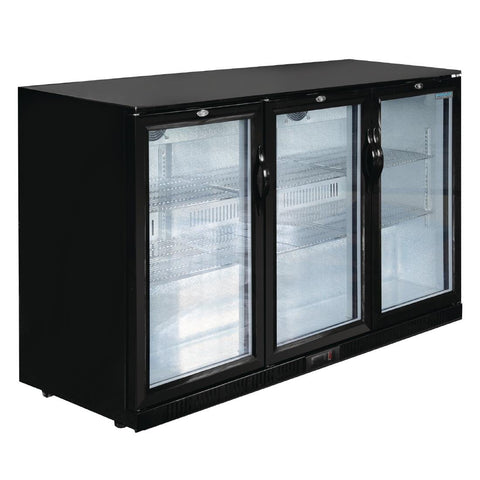

 Polar G-Series Under Counter Back Bar Cooler with Hinged Doors 320Ltr - GL014-A
Polar G-Series Under Counter Back Bar Cooler with Hinged Doors 320Ltr - GL014-A
1250(W) x 850(H) x 520(D)mm
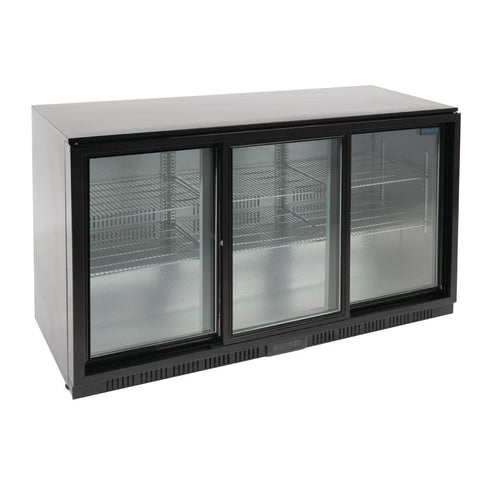

 Polar G-Series Under Counter Back Bar Cooler with Sliding Doors 320Ltr - GL013-A
Polar G-Series Under Counter Back Bar Cooler with Sliding Doors 320Ltr - GL013-A
1250(W) x 850(H) x 520(D)mm
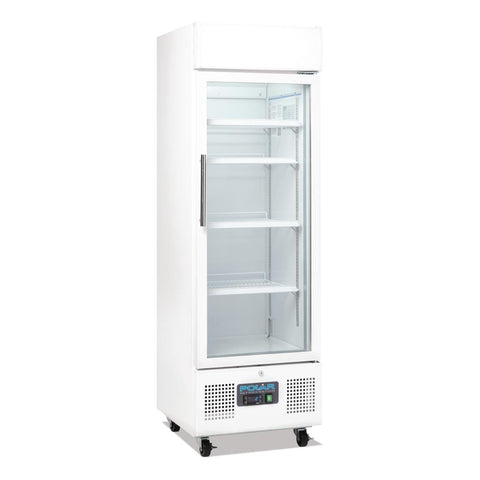

 Polar G-Series Upright Display Fridge White 218Ltr - DM075-A
Polar G-Series Upright Display Fridge White 218Ltr - DM075-A
520(W) x 1610(H) x 575(D)mm
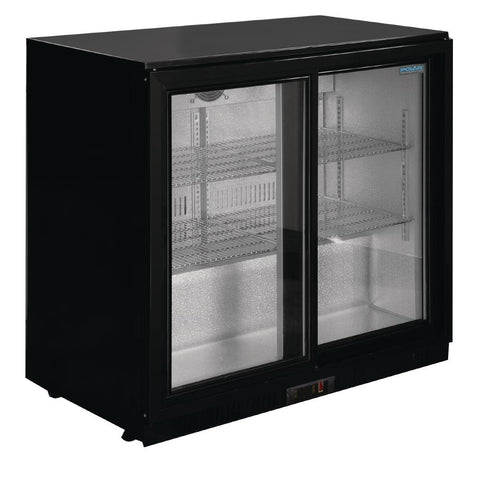

 Polar G-Series Under Counter Back Bar Cooler with Sliding Doors 198Ltr - GL010-A
Polar G-Series Under Counter Back Bar Cooler with Sliding Doors 198Ltr - GL010-A
900(W) x 850(H) x 520(D)mm
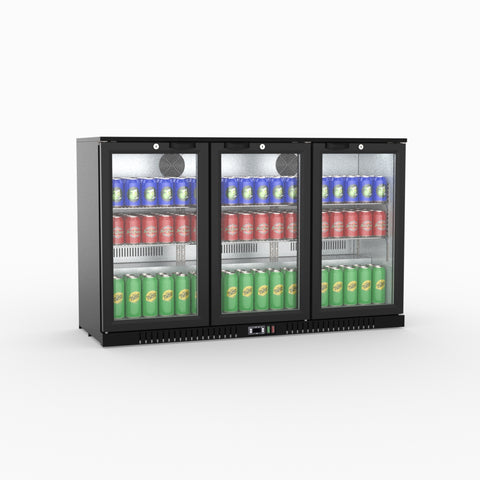

 Thermaster Under Bench Three Door Bar Cooler LG-330HC
Thermaster Under Bench Three Door Bar Cooler LG-330HC
1350(W) x 530(D) x 835(H)mm
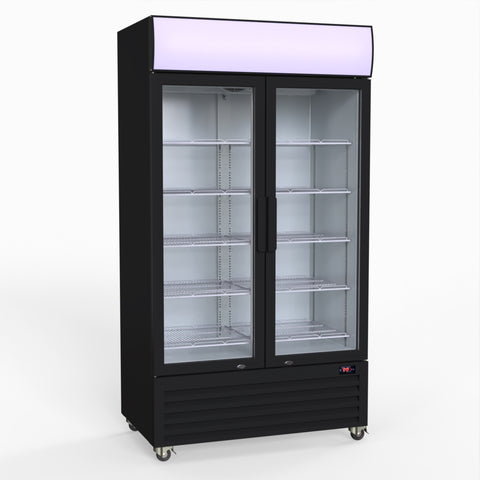

 Thermaster 1000L Colourbond Upright Beverage Fridge 2 Doors Black LG-1000BP
Thermaster 1000L Colourbond Upright Beverage Fridge 2 Doors Black LG-1000BP
1110(W) x 690(D) x 2079(H)mm
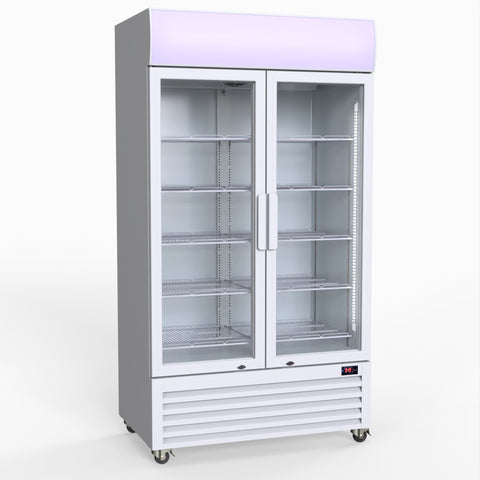

 Thermaster 1000L Colourbond Upright Beverage Fridge 2 Doors White LG-1000P
Thermaster 1000L Colourbond Upright Beverage Fridge 2 Doors White LG-1000P
1110(W) x 690(D) x 2079(H)mm
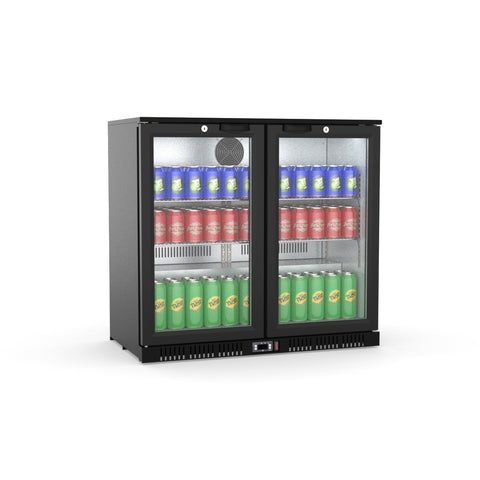

 Thermaster Under Bench Two Door Bar Cooler LG-208HC
Thermaster Under Bench Two Door Bar Cooler LG-208HC
900(W) x 530(D) x 835(H)mm
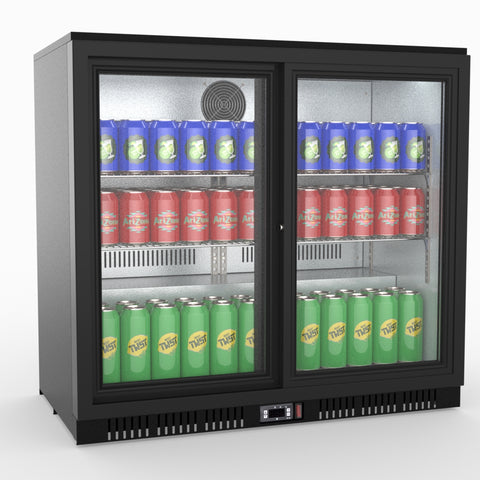

 Thermaster Under Bench Two Sliding Door Bar Cooler LG-208SC
Thermaster Under Bench Two Sliding Door Bar Cooler LG-208SC
900(W) x 530(D) x 835(H)mm
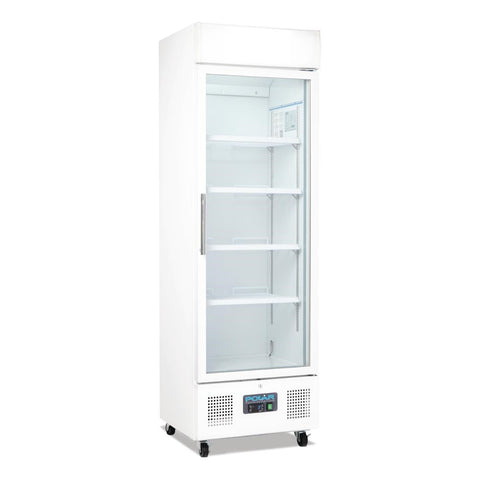

 Polar G-Series Upright Display Fridge White 350Ltr - DM076-A
Polar G-Series Upright Display Fridge White 350Ltr - DM076-A
620(W) x 1900(H) x 570(D)mm
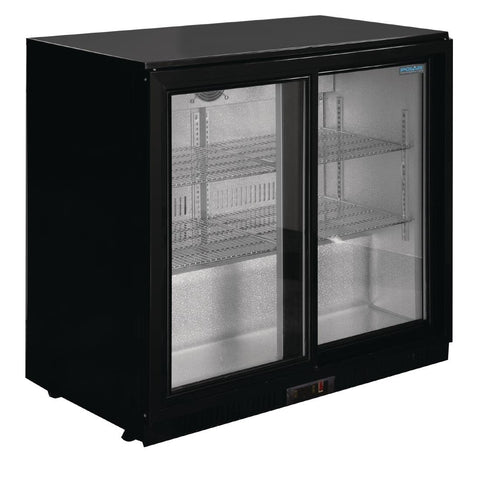

 Polar G Series Counter Back Bar Cooler with Sliding Doors 208Ltr - GL003-A
Polar G Series Counter Back Bar Cooler with Sliding Doors 208Ltr - GL003-A
900(W) x 900(H) x 520(D)mm
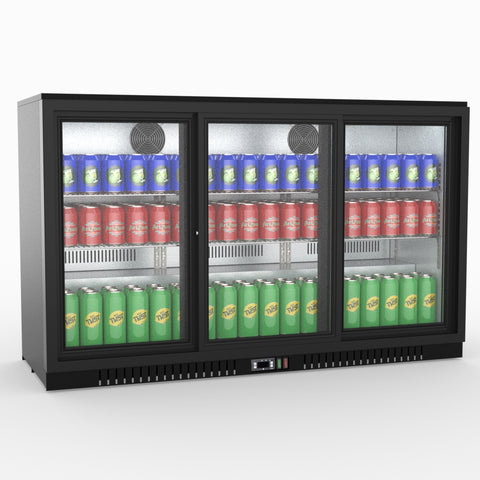

 Thermaster Under Bench Three Sliding Door Bar Cooler LG-330SC
Thermaster Under Bench Three Sliding Door Bar Cooler LG-330SC
1350(W) x 530(D) x 835(H)mm
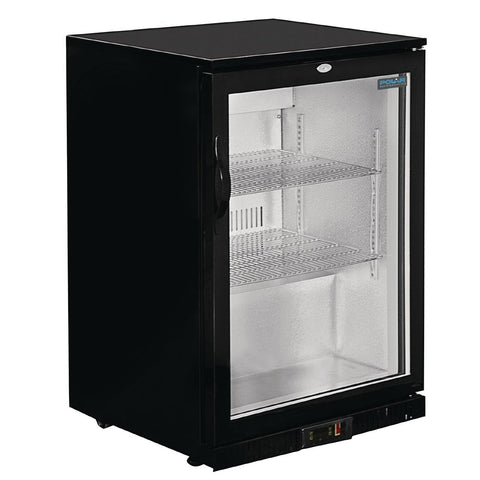

 Polar G-Series Under Counter Back Bar Cooler with Hinged Door 128Ltr - GL011-A
Polar G-Series Under Counter Back Bar Cooler with Hinged Door 128Ltr - GL011-A
600(W) x 850(H) x 520(D)mm
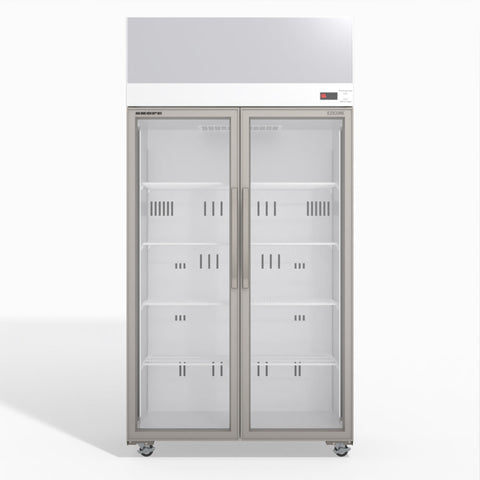

 Skope TCE1000N 2 Glass Door Display or Storage Fridge with EZICORE 896L - TCE1000N
Skope TCE1000N 2 Glass Door Display or Storage Fridge with EZICORE 896L - TCE1000N
1120(W) x 2210(H) x 750(D)mm
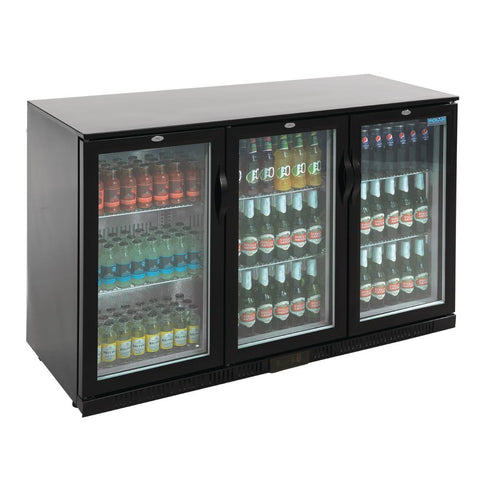

 Polar G-Series Counter Back Bar Cooler with Hinged Doors 330Ltr - GL004-A
Polar G-Series Counter Back Bar Cooler with Hinged Doors 330Ltr - GL004-A
1250(W) x 900(H) x 520(D)mm
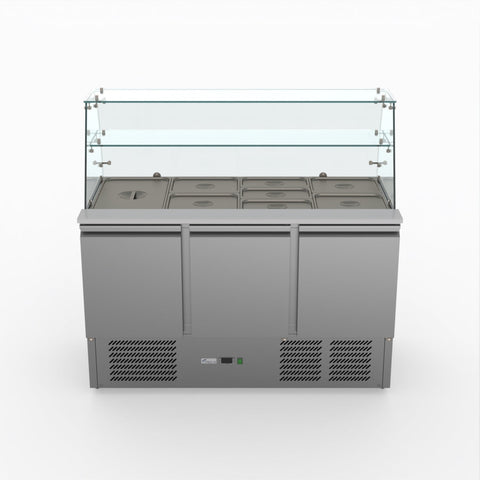

 FED-X Three Door Salad Prep Fridge With Glass Top XS903GC
FED-X Three Door Salad Prep Fridge With Glass Top XS903GC
1365(W) x 700(D) x 1310(H)mm
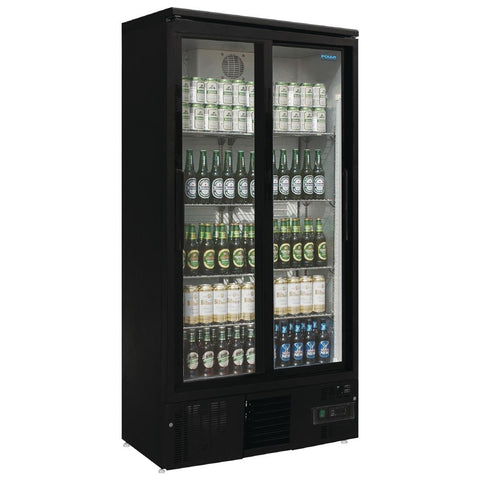

 Polar G-Series Upright Back Bar Cooler with Sliding Doors 490Ltr - GJ448-A
Polar G-Series Upright Back Bar Cooler with Sliding Doors 490Ltr - GJ448-A
920(W) x 1880(H) x 514(D)mm


 Thermaster Double Glass Door Colourbond Upright Drink Fridge LG-580BP
Thermaster Double Glass Door Colourbond Upright Drink Fridge LG-580BP
880(W) x 610(D) x 1973(H)mm
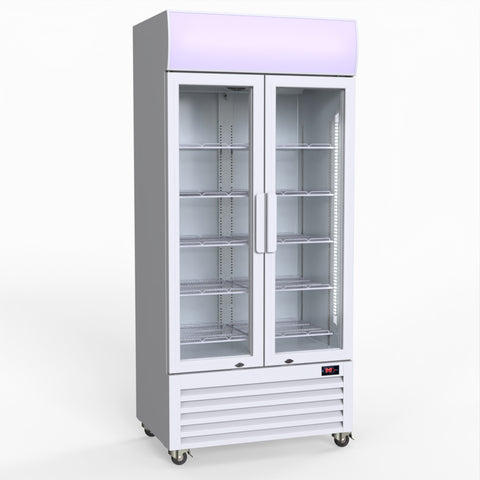

 Thermaster 580L Double Glass Door Colourbond Upright Drink Fridge LG-580P
Thermaster 580L Double Glass Door Colourbond Upright Drink Fridge LG-580P
880(W) x 610(D) x 1973(H)mm
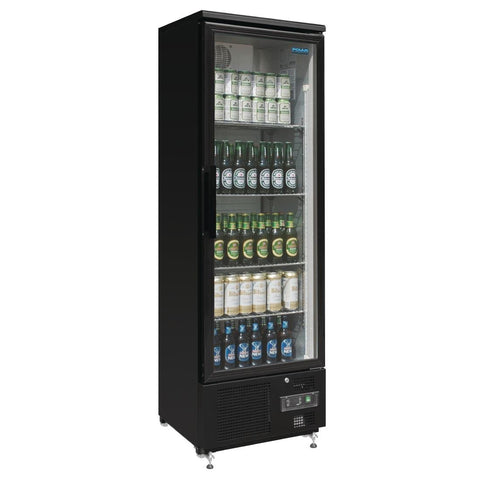

 Polar G-Series Upright Back Bar Cooler with Hinged Door 307Ltr - GJ447-A
Polar G-Series Upright Back Bar Cooler with Hinged Door 307Ltr - GJ447-A
600(W) x 1880(H) x 514(D)mm


 AG Three Door Commercial Worktop / Under Bench Fridge 700mm Depth GNX3100TN
AG Three Door Commercial Worktop / Under Bench Fridge 700mm Depth GNX3100TN
1795(W) x 700(D) x 860(H)mm
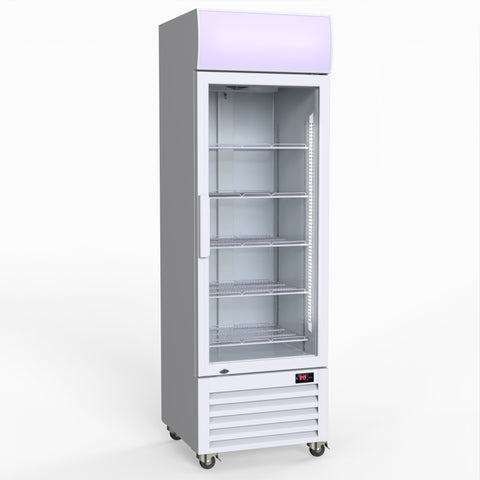

 Thermaster 370L Single Glass Door Colourbond Upright Drink Fridge LG-370P
Thermaster 370L Single Glass Door Colourbond Upright Drink Fridge LG-370P
610(W) x 610(D) x 1973(H)mm
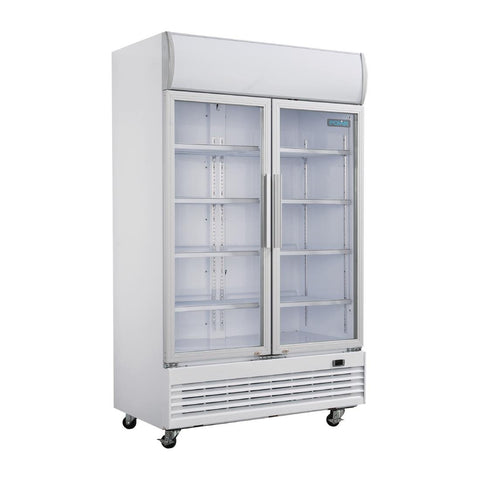

 Polar G-Series Hinged Door Upright Display Cooler with Light Box 950Ltr - GE580-A
Polar G-Series Hinged Door Upright Display Cooler with Light Box 950Ltr - GE580-A
1200(W) x 2026(H) x 720(D)mm
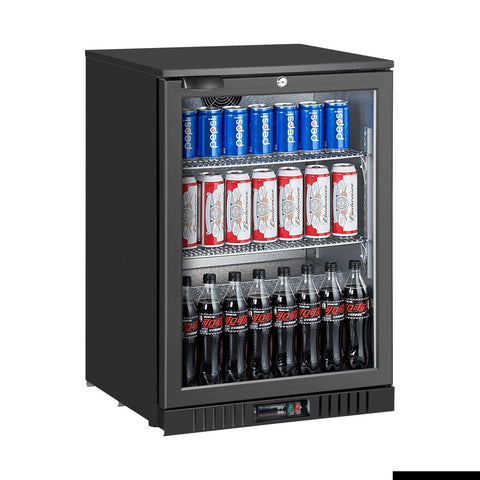

 Thermaster Under Bench Single Door Bar Cooler LG-138HC
Thermaster Under Bench Single Door Bar Cooler LG-138HC
600(W) x 530(D) x 835(H)mm
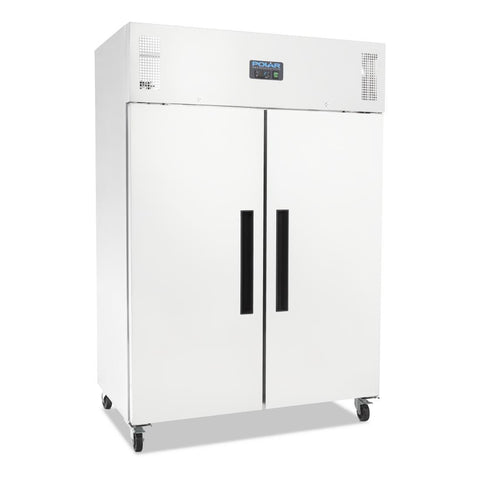

 Polar G-Series 2 Door Upright Fridge White 1200Ltr - DL898-A
Polar G-Series 2 Door Upright Fridge White 1200Ltr - DL898-A
1240(W) x 2010(H) x 850(D)mm
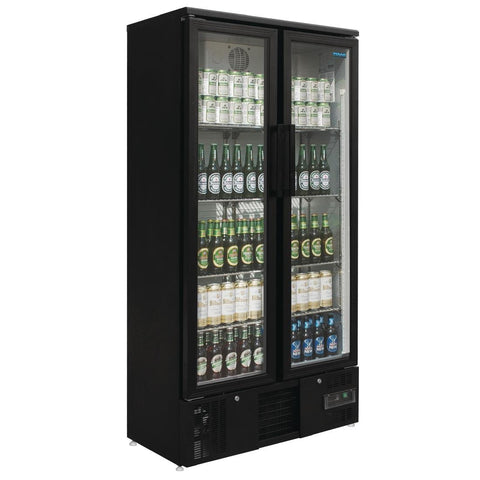

 Polar G-Series Upright Back Bar Cooler with Hinged Doors 490Ltr - GJ449-A
Polar G-Series Upright Back Bar Cooler with Hinged Doors 490Ltr - GJ449-A
920(W) x 1880(H) x 514(D)mm
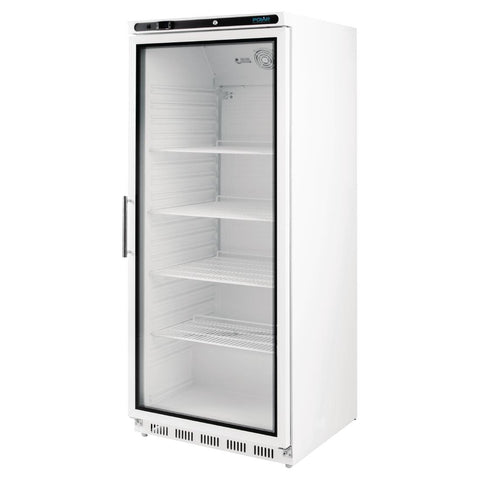

 Polar C-Series Upright Display Fridge White 600Ltr - CD088-A
Polar C-Series Upright Display Fridge White 600Ltr - CD088-A
777(W) x 1890(H) x 695(D)mm
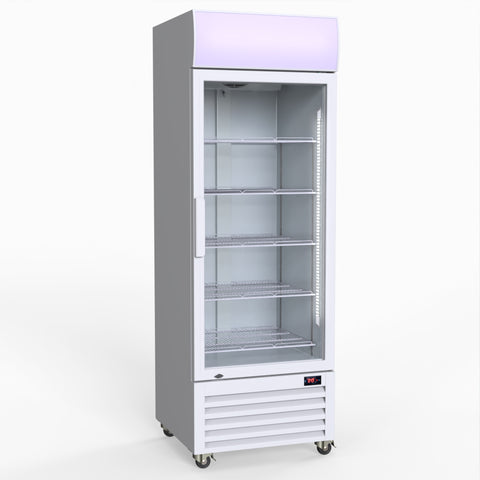

 Thermaster 540L Single Glass Door Colourbond Upright Drink Fridge White LG-540P
Thermaster 540L Single Glass Door Colourbond Upright Drink Fridge White LG-540P
700(W) x 690(D) x 2079(H)mm
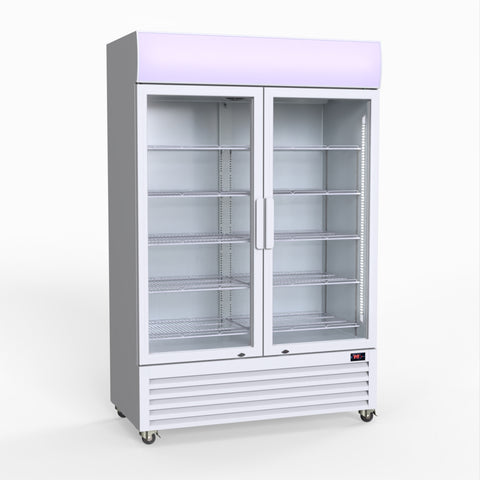

 Thermaster 1200L Large Two Glass Door Colourbond Upright Drink Fridge LG-1200P
Thermaster 1200L Large Two Glass Door Colourbond Upright Drink Fridge LG-1200P
1330(W) x 690(D) x 2079(H)mm
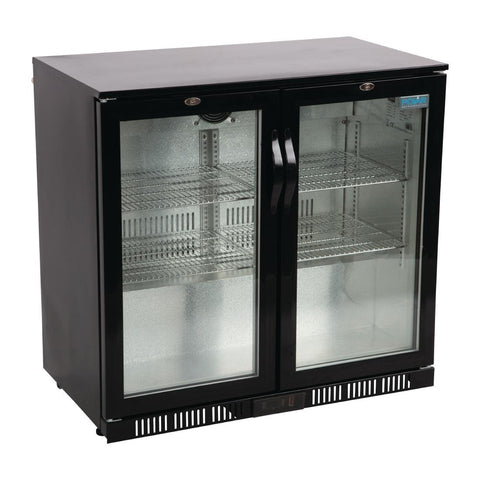

 Polar G-Series Under Counter Back Bar Cooler with Hinged Doors 198Ltr - GL012-A
Polar G-Series Under Counter Back Bar Cooler with Hinged Doors 198Ltr - GL012-A
900(W) x 850(H) x 520(D)mm
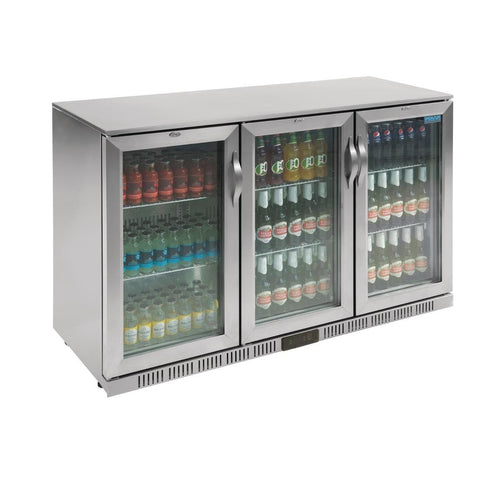

 Polar G-Series Counter Back Bar Cooler with Hinged Doors Stainless Steel 330Ltr - GL009-A
Polar G-Series Counter Back Bar Cooler with Hinged Doors Stainless Steel 330Ltr - GL009-A
1250(W) x 900(H) x 520(D)mm
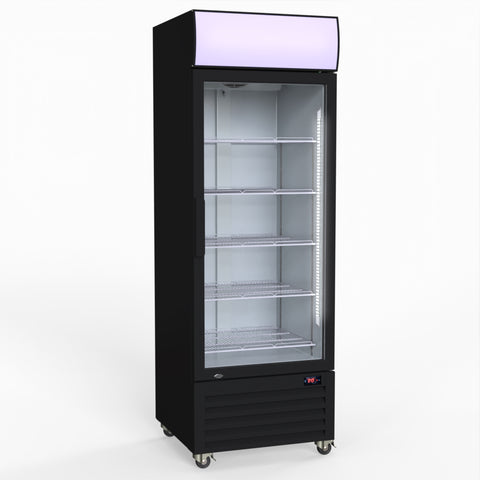

 Thermaster 540L Single Glass Door Black Colourbond Upright Drink Fridge LG-540BP
Thermaster 540L Single Glass Door Black Colourbond Upright Drink Fridge LG-540BP
700(W) x 690(D) x 2079(H)mm


 AG 650 Litre Upright Stainless Steel Door Fridge GNX650TN
AG 650 Litre Upright Stainless Steel Door Fridge GNX650TN
740(W) x 830(D) x 2010(H)mm


 AG 4 Door Commercial Worktop / Under Bench Fridge GNX4100TN
AG 4 Door Commercial Worktop / Under Bench Fridge GNX4100TN
2230(W) x 700(D) x 850(H)mm
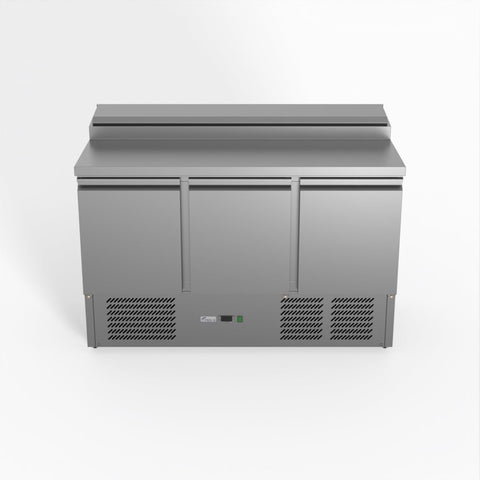

 FED-X Three Door Salad Prep Fridge XGNS1300D
FED-X Three Door Salad Prep Fridge XGNS1300D
1368(W) x 700(D) x 1020(H)mm


 AG Bench Top Saladette / Pizza Showcase - 1400mm VRX1400-380
AG Bench Top Saladette / Pizza Showcase - 1400mm VRX1400-380
1400(W) x 335(D) x 436(H)mm
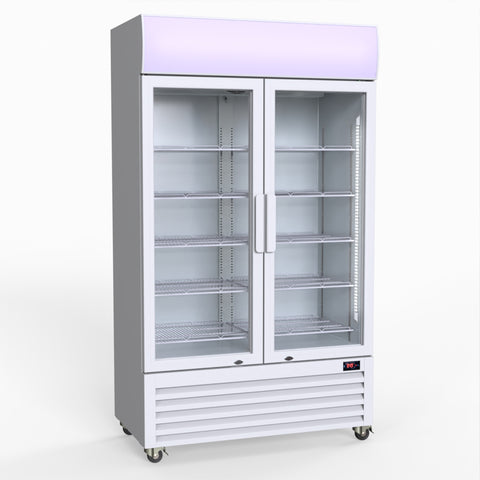

 Thermaster 730L Two Glass Door Colourbond Upright Drink Fridge LG-730P
Thermaster 730L Two Glass Door Colourbond Upright Drink Fridge LG-730P
1120(W) x 610(D) x 1973(H)mm
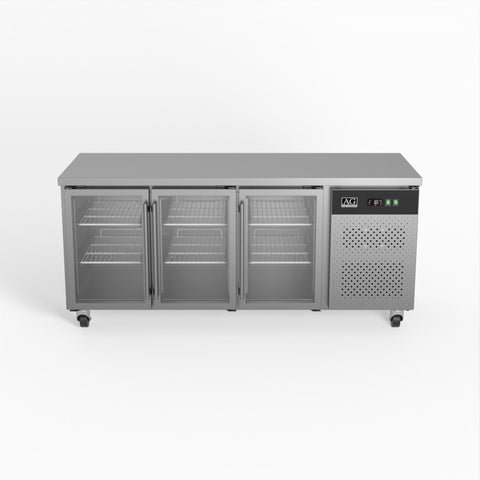

 AG Three Door Commercial Glass Door Worktop / Under Bench Display Fridge 700mm Depth GNX3100TNG
AG Three Door Commercial Glass Door Worktop / Under Bench Display Fridge 700mm Depth GNX3100TNG
1795(W) x 700(D) x 850(H)mm


 AG Four Door Commercial Worktop / Under Bench Fridge SLX4100TN
AG Four Door Commercial Worktop / Under Bench Fridge SLX4100TN
2230(W) x 600(D) x 850(H)mm
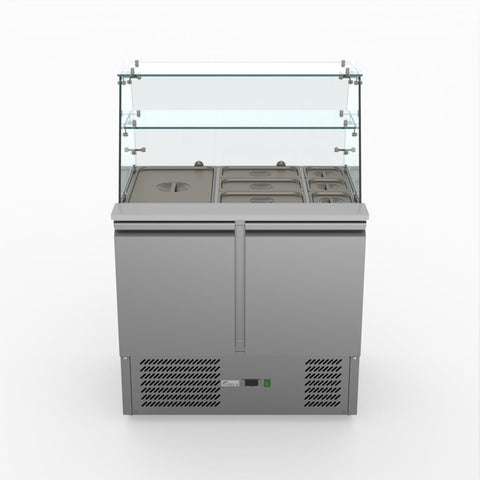

 FED-X Two Door Salad Prep Fridge With Square Glass Top XS900GC
FED-X Two Door Salad Prep Fridge With Square Glass Top XS900GC
903(W) x 700(D) x 1310(H)mm


 AG Three Door Commercial Worktop / Under Bench Fridge 600mm Depth SLX3100TN
AG Three Door Commercial Worktop / Under Bench Fridge 600mm Depth SLX3100TN
1795(W) x 600(D) x 850(H)mm
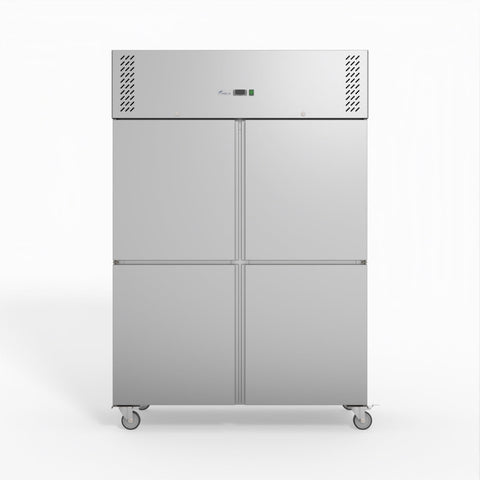

 FED-X S/S Four Door Upright Fridge XURC1200S2V
FED-X S/S Four Door Upright Fridge XURC1200S2V
1340(W) x 810+30(D) x 2000(H)mm
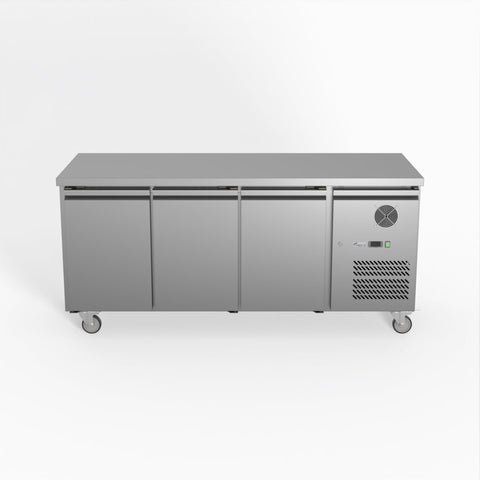

 FED-X S/S Three Door Bench Fridge XUB7C18S3V
FED-X S/S Three Door Bench Fridge XUB7C18S3V
1795(W) x 700(D) x 850(H)mm
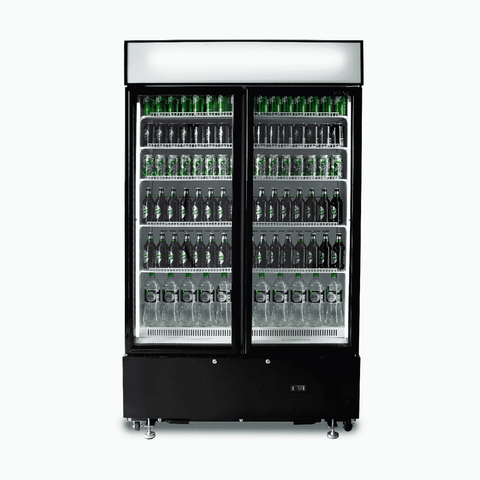

 Bromic Upright Display Fridge - 960L - 2 Doors - Flat Glass - Cassette - Black GM1000LBCAS
Bromic Upright Display Fridge - 960L - 2 Doors - Flat Glass - Cassette - Black GM1000LBCAS
1200(W) x 690(D) x 2080(H)mm


 FED-X S/S Three Door Sandwich Counter XSS7C18S3V
FED-X S/S Three Door Sandwich Counter XSS7C18S3V
1795(W) x 700(D) x 1406(H)mm
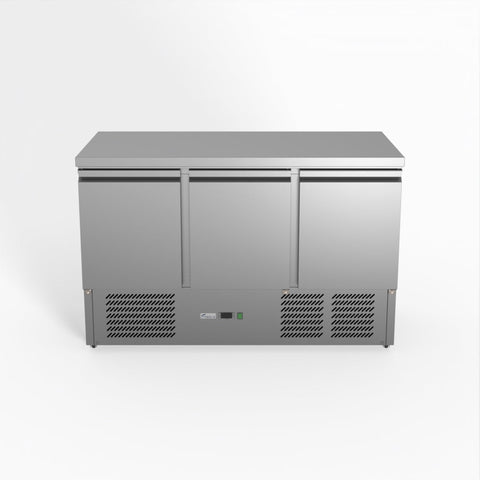

 FED-X Compact Workbench Fridge XGNS1300B
FED-X Compact Workbench Fridge XGNS1300B
1368(W) x 700(D) x 897(H)mm
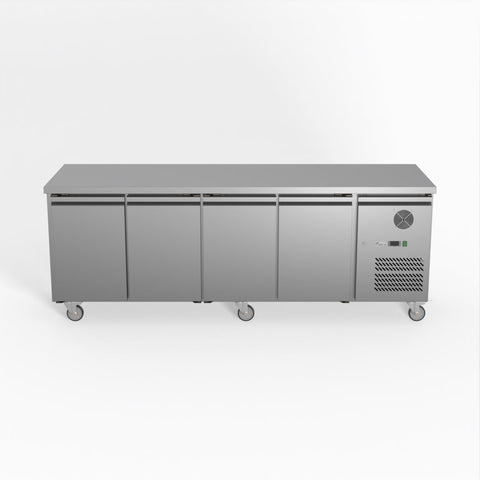

 FED-X S/S Four Door Bench Fridge XUB7C22S4V
FED-X S/S Four Door Bench Fridge XUB7C22S4V
2230(W) x 700(D) x 850(H)mm
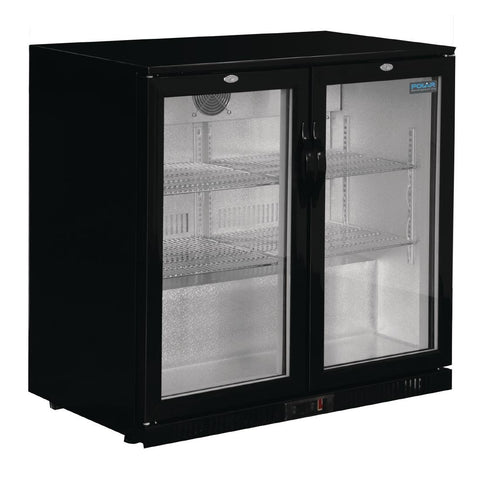

 Polar G-Series Counter Back Bar Cooler with Hinged Doors 208Ltr - GL002-A
Polar G-Series Counter Back Bar Cooler with Hinged Doors 208Ltr - GL002-A
900(W) x 900(H) x 520(D)mm


 Thermaster 1200L Three Glass Door Colourbond Upright Drink Fridge LG-1203P
Thermaster 1200L Three Glass Door Colourbond Upright Drink Fridge LG-1203P
1600(W) x 610(D) x 1973(H)mm
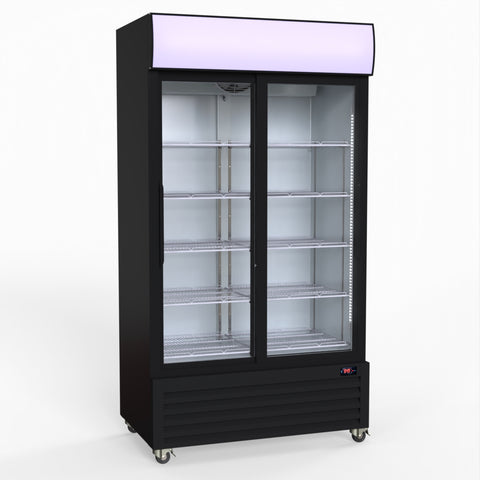

 Thermaster 1000L Two Sliding Glass Door Colourbond Upright Drink Fridge Black LG-1000SDBP
Thermaster 1000L Two Sliding Glass Door Colourbond Upright Drink Fridge Black LG-1000SDBP
1110(W) x 690(D) x 2079(H)mm


 AG 3 Saladette with G/N 1/3 GN trays x 10 SH3000-800
AG 3 Saladette with G/N 1/3 GN trays x 10 SH3000-800
2020(W) x 800(D) x 1085(H)mm
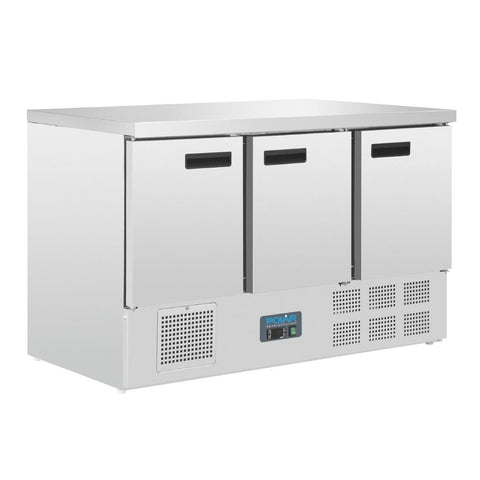

 Polar G-Series 3 Door Counter Fridge 368Ltr - G622-A
Polar G-Series 3 Door Counter Fridge 368Ltr - G622-A
1270(W) x 880(H) x 700(D)mm
Commercial fridges are one of the core appliances you’ll need when working in the food industry. With a wide spectrum of sizes, shapes, layouts, and capabilities, choosing the right one is an important investment. Commercial fridges can even go beyond hospitality and are equally integral pieces of equipment in retail environments like delis, supermarkets, bottle shops, florists and patisseries. They’re designed to withstand the demands of higher use, from frequent opening and closing, restocking and harder wear and tear.
At Restaurant Equipment Online, we offer a comprehensive range of commercial fridges that cater to business owners' diverse needs. Whether you need a spacious display fridge or counter fridge or something compact like an under-counter bar fridge, you’ll find what you need here. Explore the top brands in commercial refrigeration, including Polar, Thermaster, AG Equipment, and Bromic, and find the perfect choice for your establishment.
By factoring in a few key features, you can narrow down your options when choosing the best commercial refrigerator for your business. Our top recommendations to consider include the capacity of the fridge, the internal design, how energy efficient it is and whether you need any additional features or functionality.
Getting the size of your commercial fridge right is important. It’ll need to be able to store everything you need access to while also fitting into the precious space you have in your establishment. You’ll want something large enough to accommodate your stock without leaving too much empty and unused space. Ensuring your fridge isn’t overstocked is important for maintaining a consistent core temperature in everything that you’re storing. This is especially important for food health and safety.
Choosing a versatile commercial fridge that allows you to rearrange the shelves, baskets, or trays is a useful feature for every kitchen. It’s useful when you’re changing stock over, needing to clean it thoroughly, or regularly changing bottle sizes when it comes to display fridges.
You’ll also want to consider getting an option with a digital thermostat. This not only facilitates more accurate temperature readings but also allows you to control how cool you want it to be more easily.
Many businesses are looking for more energy-efficient refrigerators, both to reduce their environmental impact and to save on electricity bills. Look for models that use R600A refrigerant, which is both non-toxic and also more affordable in the long term. Additional minor features that can help reduce the energy use of your fridge include LED lights, which require less power to run. When it comes to the kind of cooling your commercial fridge uses, we recommend choosing a fan-assisted static model. Fan-assisted static cooling refrigerators are the best option for energy efficiency. They’re also quieter than fan-forced cooling alone and offer cooler, more consistent temperatures than static cooling alone.
Along with energy efficiency, versatile design, and ample space, you may also want to consider additional functionality and certain features. One of the key things to look for is automatic defrosting. Not only does this save labour hours when removing ice buildup, but it also ensures a more consistent, even temperature throughout.
For fridges that will be opened and closed frequently, it’s also worth checking whether the model you’re interested in has automatically closing doors. This helps conserve energy in the long term and ensures the contents of your fridge remain at the optimal temperature.
If you’re going to be keeping your commercial fridge outdoors, where it’s especially warm, or if you live in a humid climate, you may also want to look for a tropical commercial fridge. These are made to handle the more challenging conditions without forming condensation, which can damage the electrics.
Commercial and residential refrigerators differ in several ways:
1. Size and Capacity: Commercial refrigerators are generally larger and have a higher capacity than residential ones. They are designed to store larger quantities of food and beverages to meet the demands of a commercial kitchen or restaurant.
2. Construction and Durability: Commercial refrigerators are built with more durable materials such as stainless steel to withstand heavy use in a commercial setting. They are also designed to maintain consistent temperatures even with frequent opening and closing.
3. Temperature Control: Commercial refrigerators typically have more advanced temperature control features to ensure that perishable items are stored at the proper temperature to comply with food safety regulations.
4. Energy Efficiency: Commercial refrigerators are designed to be more energy-efficient than residential models, as they are often in operation 24/7 in a commercial kitchen.
In summary, commercial refrigerators are designed for heavy-duty use in commercial kitchens and restaurants, while residential refrigerators are more suited for home use with a focus on convenience and style.
A commercial fridge freezer is a type of refrigeration unit specifically designed for use in commercial settings, such as restaurants, bars, and other foodservice establishments. It offers a combination of both refrigerator and freezer storage in a single unit, allowing for efficient temperature control and storage of a variety of perishable food items. These units are typically larger in size and capacity compared to residential fridge freezers, making them ideal for businesses with high volume storage needs. Commercial fridge freezers are essential for maintaining food safety standards and preserving the quality of ingredients in a commercial kitchen environment.
The cost of a commercial fridge can vary depending on the size, brand, features, and energy efficiency rating. On average, prices for commercial fridges range from a few hundred to several thousand dollars. For a more specific price, we recommend browsing our selection online or contacting our customer service for assistance.
Commercial fridges should be cleaned regularly to maintain hygiene and food safety standards. It is recommended to clean a commercial fridge at least once a week, or more frequently in busy restaurant environments. Regular cleaning helps to prevent the buildup of bacteria, odors, and spills that can contaminate stored food items. Additionally, thorough cleaning of the fridge ensures efficient operation and prolongs its lifespan.
Commercial fridges typically have higher energy consumption compared to residential fridges due to their larger size and capacity to store a larger volume of food items and beverages. However, the exact amount of power usage can vary depending on factors such as the size, age, and energy efficiency rating of the commercial fridge. It is recommended to check the energy ratings and specifications of specific commercial fridges to determine their power usage.
The life expectancy of a commercial refrigerator can vary depending on various factors such as the brand, usage patterns, maintenance, and quality of the unit. On average, a well-maintained commercial refrigerator can last anywhere from 10 to 20 years. It is important to regularly service and clean the refrigerator to extend its lifespan and ensure optimal performance.
The cost of running a refrigerator for 24 hours can vary depending on the size, model, and energy efficiency of the refrigerator, as well as the local cost of electricity. On average, a standard refrigerator typically consumes around 1-2 kWh of electricity per day.
To calculate the cost of running a refrigerator for 24 hours, you can use the following formula:
(Cost per kWh) x (kWh consumed per day) = Cost to run the refrigerator for 24 hours
For example, if the cost of electricity is $0.12 per kWh and the refrigerator consumes 1.5 kWh per day, the calculation would be:
$0.12 x 1.5 kWh = $0.18
Therefore, it would cost around $0.18 to run a refrigerator for 24 hours under these conditions. It is recommended to check with your utility provider for more accurate rates and energy consumption specifics for your refrigerator model.
When choosing a commercial refrigerator for your restaurant or business, there are several factors to consider. Firstly, you'll need to determine the size and capacity that suits your needs. Consider the amount of food you need to store and the available space in your kitchen.
Next, think about the type of refrigerator you need - whether it's a reach-in, walk-in, or under-counter refrigerator. Each type has its own advantages depending on your specific requirements.
Additionally, pay attention to the features of the refrigerator such as energy efficiency, temperature control, and defrosting options. These factors can affect the performance and operation costs of the refrigerator in the long run.
It's also important to choose a reputable brand and ensure that the refrigerator meets the necessary health and safety standards for commercial use.
Lastly, consider your budget and overall requirements to make an informed decision on the best commercial refrigerator for your business. If you have any specific questions or need assistance, feel free to reach out to us for further guidance.
When considering purchasing a commercial refrigerator, there are several factors to take into account to ensure that it meets the specific needs of your restaurant or foodservice establishment. Here are some important factors to consider:
1. Size and Capacity: Determine the space available in your kitchen and the amount of storage capacity needed to store your perishable items.
2. Energy Efficiency: Look for energy-efficient models that can help reduce electricity costs in the long run.
3. Temperature Control: Ensure that the refrigerator offers precise temperature control to keep your food items at the optimum temperature for freshness and safety.
4. Durability and Build Quality: Choose a refrigerator made with high-quality materials that can withstand the demands of a commercial kitchen.
5. Ease of Maintenance: Consider models that are easy to clean and maintain to ensure food safety and longevity of the equipment.
6. Storage Options: Look for features such as adjustable shelves, drawers, and compartments to maximize storage efficiency.
7. Brand Reputation and Warranty: Purchase from reputable brands known for their quality products and check for warranty coverage to protect your investment.
By considering these factors, you can select a commercial refrigerator that best suits the needs of your restaurant and helps to maintain the quality and freshness of your food items.
The recommended temperature for a commercial fridge typically ranges between 33°F and 38°F (0.5°C to 3.3°C). This temperature range helps to ensure the safe storage of perishable food items and maintain their freshness. However, it is advisable to refer to the specific guidelines provided by the manufacturer of the commercial fridge to determine the ideal temperature setting for optimal performance.
Yes, at REO we offer a variety of specialized commercial fridges designed specifically for storing meat and pharmaceuticals. These fridges are equipped with features such as temperature controls, humidity settings, and secure storage compartments to ensure the safe and proper storage of these types of items. If you are in need of commercial fridges for storing meat or pharmaceuticals, please feel free to browse our selection online or contact our customer service team for assistance.
The noise level of commercial fridges typically varies depending on the brand and model, but generally, commercial fridges tend to be louder than residential refrigerators. This is because commercial fridges are designed to handle heavy usage and higher cooling capacities, which can result in more noise produced during operation. However, advancements in technology have led to quieter commercial fridge options available in the market. It is recommended to review the specifications and reviews of specific models to determine the noise level that is acceptable for your establishment.
Yes, there are energy-efficient options available for commercial refrigerators. Many manufacturers offer models that are designed to be more energy-efficient, helping businesses reduce their energy costs and environmental impact. These refrigerators are often equipped with features such as better insulation, LED lighting, and energy-efficient compressors to minimize energy consumption while maintaining optimal cooling performance. It is recommended to look for Energy Star certified models when shopping for energy-efficient commercial refrigerators.